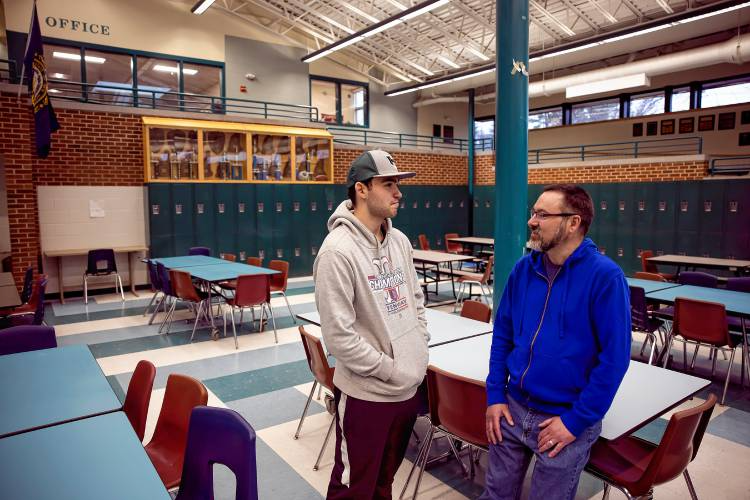For students at the University of New Hampshire (UNH), the last week has been a miserable case of déjà vu, and a coronavirus (COVID-19) vaccine provides a glimmer of hope.
It has nearly been 11 months since UNH closed their campus, sent their students home and went to all-remote instruction as the then-novel coronavirus (COVID-19) spread throughout the U.S. Since last March, Zoom calls, isolation and quarantine have become household words to young adults who are trying to build their futures. News of vaccines in production in November helped bring confidence back to the UNH community that normalcy was ahead, but despite this, most college students are far from it.
UNH President James Dean announced on Feb. 11 that the university would be transitioning to “orange mode,” a school-wide restrictive measure that prevents students and faculty from engaging in face-to-face instruction. This isn’t quite the nightmare that students experienced in the spring of 2020, but it’s another hurdle that they are forced to overcome.
While the term “COVID fatigue,” as coined by Provost Wayne Jones in an email to UNH faculty, does not inspire confidence in the UNH community or assure them that the spring 2021 semester will continue in yellow mode, it gives a sense of where they are at in terms of dealing with the multitude of protocols that stem from the threat of the virus. While UNH tries to manage their number of cases by searching for a temporary solution, as a vaccine could be months down the line.
“Like many schools across the country, and our own experience in the fall, we are seeing an increase in asymptomatic positive COVID cases as the semester gets underway,” Jones said. “The rate of increase is higher than we have seen before and is NOT linked to so-called ‘super spreader’ events, but rather smaller more informal gatherings off campus. Our students, like many of us, are experiencing COVID fatigue.”
According to the N.H. Department of Health and Human Services’ COVID-19 Vaccination Allocation Plan, which was released on January 16, college-aged students will not be able to receive the vaccine until May at the earliest. Exceptions include the medically vulnerable, first responders, high-risk health workers and staff of long-term care and assisted living facilities.
The plan consists of three phases, with the first focusing on those high-risk health workers and first responders (1A). The second part of phase one targets senior citizens, the medically vulnerable, corrections officers and residents and staff of facilities that house persons with intellectual and developmental disabilities (1B). The second stage will span from March into May, with the available doses going to K-12 students, the childcare staff associated with them and people aged 50 to 64. The moderately high-risk people under the age of 50 will follow, with everyone else after that. So, many college-aged students in N.H. and around the country will be the some of the last to receive the vaccine.
However, in a recent interview with Yahoo, Dr. Anthony Fauci, the chief medical advisor to President Joe Biden, stated that the vaccine distribution could take longer than expected.
“When we were talking about April, we were hoping that when you say available, you’re talking about to anybody beyond the layered priorities– you know, the 1A, 1B, 1C,” Fauci said. “And then you get to the point where you say now anybody who’s anybody can wind up getting a vaccine. We were hoping that it would be by the end of April, but what has happened is that the doses that we were expecting earlier from the J&J likely will not be available for another couple of months after that.”
There have been national rumblings when it comes to a potential requirement to receive the COVID-19 vaccine in order to attend certain colleges and universities in the U.S. It is still to be determined whether UNH will require the COVID-19 vaccine to return to campus in the fall of 2021.
Renee Mattei Myers, an attorney at Eckert Seamans Cherin & Mellott, LLC and legal correspondent for CNBC said in a recent interview that it is possible for schools to do this.
“Under everything that we’ve seen, and the guidance from agencies like the Equal Employment Opportunity Commission and the Department of Education, it’s been stated that just like how [colleges] can require other vaccines like meningitis and measles and hepatitis for incoming students, that they could require this vaccine as well,” Myers said.
To learn more about the COVID-19 vaccine, visit CDC.gov or see TNH’s previous coverage.
Photo courtesy of the New Hampshire Department of Health and Human Services.





















